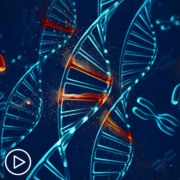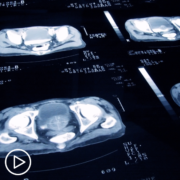Advancing Lung Cancer Treatment: Bridging the Gap in Personalized Care
Advancing Lung Cancer Treatment: Bridging the Gap in Personalized Care? from Patient Empowerment Network on Vimeo.
What should lung cancer patients know about the latest treatment and research news? Expert Dr. Christina Baik from Fred Hutchinson Cancer Center discusses immunotherapy, targeted therapy, and resistance mechanisms for treatment.
See More from START HERE Lung Cancer
Related Resources:

|

Newly Diagnosed Non-Small Cell Lung Cancer | Key Advice for Patients |

Understanding Oncogene-Driven Lung Cancer: Targeted Therapy Advances and Challenges |
Transcript:
Lisa Hatfield:
Dr. Baik, can you speak to the latest news and priorities for the treatment of non-small cell lung cancer? And what are the notable advancements in understanding resistance mechanisms or novel therapeutic targets?
Dr. Christina Baik:
So it’s a good time to be a lung cancer doc, I would say, just because there’s so much advance. We’re seeing different treatments be FDA-approved every other year, if not every year. So it’s really good to have all these options to offer our patients. Now the priority, however, is that not everyone is benefiting in an equal way from all these advances. And really the research priority, including my own personal research, is to really understand why some patients are benefiting and why some are not.
So, for example, in the immunotherapy world, which is a big advance we’ve had in lung cancer in the last 10 years, we know that some patients respond very well, some do not. Yet we give the same sort of treatment to patients. So one thing to understand is who are…and one thing I would say is we don’t personalize immunotherapies for our patients.
So one of the research priorities is to really understand where the different subgroups of patients who are going to benefit from this one treatment type…one type of immunotherapy treatment versus the other. So I would say that’s a big priority for me as well as for the field and all the researchers so that we’re giving the right treatment to the right patient. Now, there have been advances, I would say, in this theme in those patients who are able to receive a targeted therapy. So that is a type of treatment that we give to target the genetic abnormalities that exist in a particular patient’s tumor.
And these treatments work very well. But at some point, it stops working. But nowadays, there are certain sorts of resistance mechanisms as we call it. These are changes that occur in the tumor when a targeted therapy stops working. And we’re starting to understand better in terms of reasons for that and actually develop treatment options for those mechanisms of resistance. So I think we are starting to understand better, and I think we’re going to get there in terms of personalizing immunotherapy. But there’s still a lot of work to be done.
Share Your Feedback
Create your own user feedback survey










